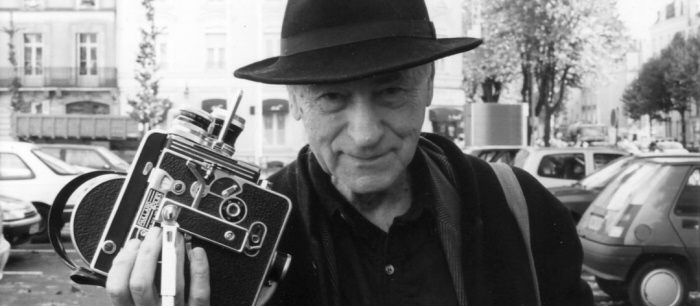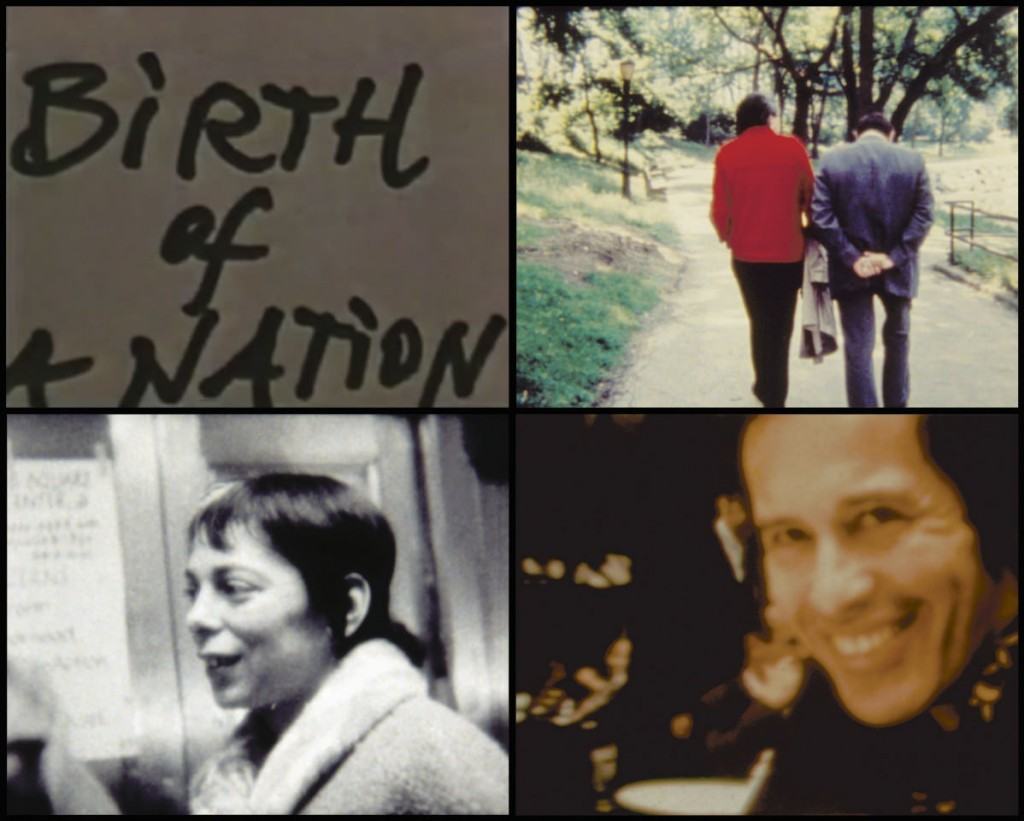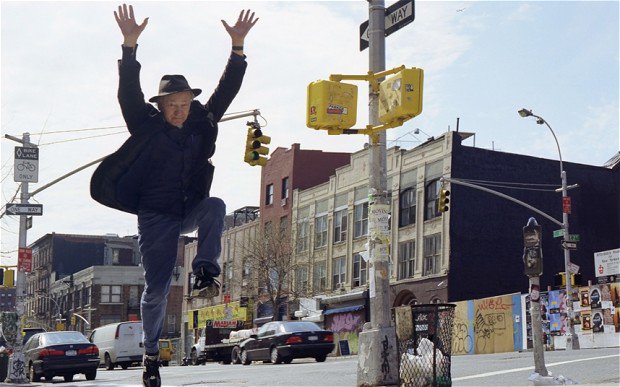When Jonas Mekas reached New York in 1949, he was a shy Lithuanian refugee who had endured, with his brother Adolfas, a Nazi labor camp and various DP (displaced persons) camps in Europe. He kept diaries and walked a lot in those early years in America, seeking out other artists and filmmakers. In surprisingly short order, Jonas—friends and strangers alike called him Jonas—co-founded a screening series of primarily experimental works and wrote the program notes; he also found his voice with a camera.
As a devoted filmmaker and the Village Voice’s first film critic in 1958, Mekas emerged as an influential champion of avant-garde filmmaking. It was an exciting period, with culture hounds from commercial directors to pop artists (Andy Warhol, notably) inspired by the freedom, beauty and expressiveness of experimental cinema. Mekas spearheaded essential infrastructure by founding the Filmmakers’ Cooperative (for distribution) and Anthology Film Archives (exhibition and preservation), and continued his frequent, diary-style film shoots.

Mekas’ contributions to several generations of filmmakers, in and beyond New York City, are unmatched. But his movies, including the 1976 epic Lost, Lost, Lost, compiled from all that footage Mekas shot in the first years after his arrival in the States, are just as important. Mekas loved to film, to capture moments in images, and his work is vivid and incisive.
“I am afraid that most of my early material—and my early films too—are fading, going,” Mekas told film critic and historian Scott MacDonald in 1983 at the end of a lengthy interview. “It would take about $40,000 to preserve my films. That’s a lot of money. Money—or dust. Money against the dust of time into which all our works eventually disappear.”

Jonas mined that vast trove of material, along with miles of celluloid he shot of other independent filmmakers and their supporters, for Birth of a Nation (1997). To celebrate Jonas’ remarkable 96 years on the planet, and to mark his passing on Jan. 23, San Francisco Cinematheque and Canyon Cinema (the Bay Area filmmakers’ enterprise that actually predates Filmmakers’ Cooperative) screen that vibrant film on Wed., Feb. 13 at Artists’ Television Access. (Not coincidentally, ATA is S.F.’s own long-running bastion of avant-garde, out-of-the-mainstream film.)


